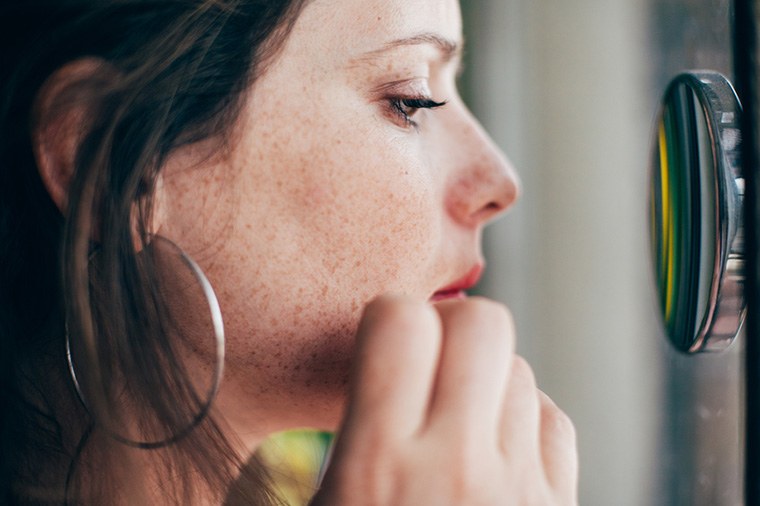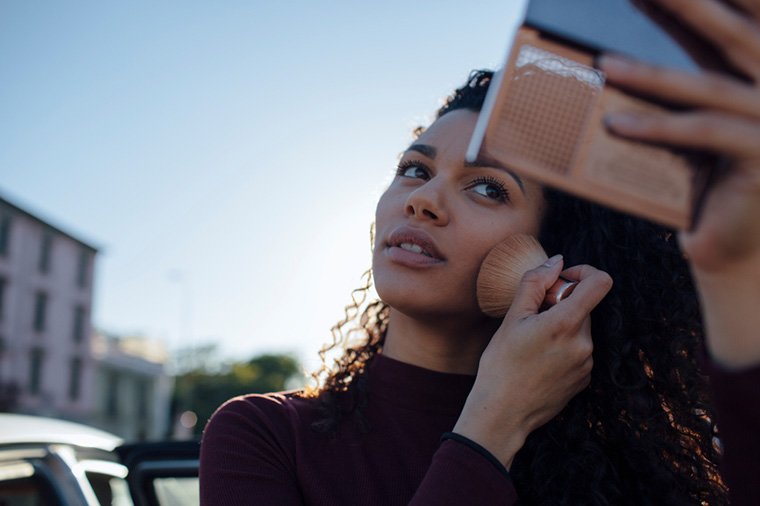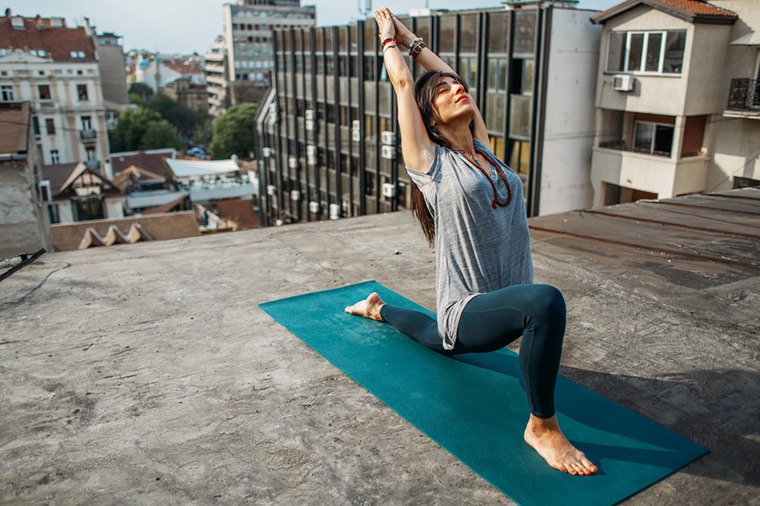You may tell yourself "mind over matter" when trying to overcome a job-related obstacle or last round of mountain climbers in boot camp. But to a psychodermatologist (a relatively new field that ties psychiatry with dermatology), it's all about mind over skin—because your brain has a major influence over what comes up on your complexion.
From topical outbreaks like cold sores to the ever-so-common condition of adult acne, your mind is likely a major culprit behind them.
"Believe it or not, this connection actually formed before you were born," says Josie Howard, MD, a psychodermatologist who's super credentialed—trained in both dermatology and psychiatry. "The mind and skin are intimately connected from the very first weeks after the sperm and egg come together."
"It's so important to properly handle the emotional aspects and triggers of skin conditions as well."
This organism splits into three primary layers shortly after that: the ectoderm, endoderm, and mesoderm. "One of these layers becomes the mind and the skin," explains Dr. Howard. In other words, the ectoderm gives rise to the skin and the nervous system (which includes the brain), meaning they're derived from the same cell layer in the embryo. That's why visible skin conditions are so closely tied to your mind—and how you feel in general.
"When people experience issues such as a breakout, it can be induced or worsened by stress," she says. "It's so important to properly handle the emotional aspects and triggers of skin conditions as well—people get so much better that way."
Here's the lowdown on how exactly your mind's affecting your complexion—plus how to deal in order to put your best face forward.

1. On a biological level
As Dr. Howard notes, your mind and skin intrinsically influence each other. "This ranges from pro-inflammatory stress hormones to chemicals (like neuropeptides) that are released by the nervous system in response to stress, which directly affects your skin's health," she says.

{{post.sponsorText}}
Then there are other lifestyle factors, like anxiety and insufficient sleep, which can lead to a skin condition. "The best approach for this connection is to know and manage your triggers," explains Dr. Howard. "For example, if you know that job stress usually leads to breakouts, prioritize learning different ways to manage that stress—from yoga to meditation or time in nature—and then plan on incorporating those strategies into your schedule."

2. Perception
Have you ever cleared your social calendar when you're dealing with hormonal acne? (Guilty.) "When you're facing skin issues, you tend to see yourself through a more critical or negative filter," says Dr. Howard. That leads to a domino effect of a decrease in confidence and the likely impulse to hygge rather than go out in public for, say, a run.
"Skin conditions like acne can cause a lot of social isolation and a difference in your self-esteem," she says. "Being aware of this on an intellectual level and working to remind yourself that it's temporary can help deal with the emotional response." The idea is to have power over your complexion woes—don't let them inhibit or define you.

3. Behavior
Your perception of your complexion can lead to not-so-healthy behaviors—especially if you're feeling low levels of confidence. "When people are anxious or unhappy about their skin, it can affect their actions in terms of how they care for it," says Dr. Howard. "Sometimes anxiety can lead someone to over-treat or aggravate a condition, whereas depression can lead to neglect and under-treating issues that need handling." Makes sense—I know that in times of emotional distress I've picked at pimples, which only led to them getting worse.
"I always tell my patients to take a topical treatment with them so they can use it the first moment they feel something coming on," she advises. Essentially, knowledge is power—and knowing to keep your stress in check will ensure you have a healthy (and glowy) mind-skin relationship.
Speaking of skin esteem, here's why this editor is so over skin-shaming. To keep things calm, try yoga nidra—which may be the key to wiping out stress and anxiety for good.
Loading More Posts...